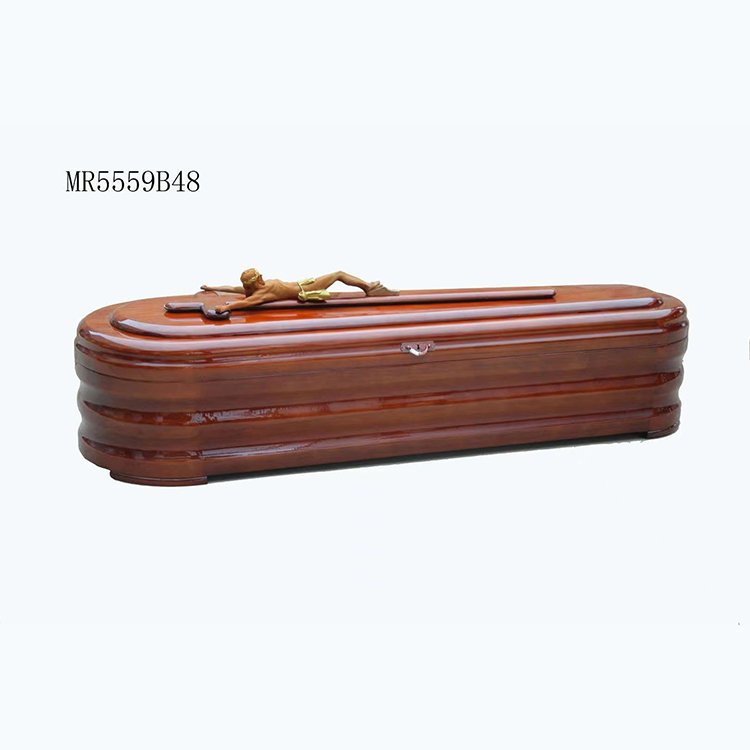Caskets and coffins serve as the final resting places for loved ones, and the choice of a casket is a deeply personal decision. The quality of a casket, the number of manufacturers in the United States, and the decomposition process of different materials are all important considerations when planning a funeral. This article explores these aspects, providing insight into the best quality caskets, the landscape of casket manufacturing in the U.S., and what happens to a body in a wooden casket over time.

The Best Quality Casket
Determining the “best” casket can be subjective, as it depends on personal preferences, cultural practices, and the desired level of craftsmanship. However, when evaluating quality, several factors come into play:
Materials: High-quality caskets are often made from durable materials such as solid wood, metal, or a combination thereof. Woods like mahogany, oak, and cherry are popular for their natural beauty and durability.
Craftsmanship: The skill and care taken in constructing the casket are critical. A well-made casket will have tight joints, smooth finishes, and a sturdy construction that stands up to handling and burial.
Customization Options: Many high-quality caskets offer personalization options, such as engravings, custom linings, and hardware that reflect the personality or wishes of the deceased.
Brand Reputation: Brands like Batesville, known for their longevity and commitment to quality, are often associated with top-tier caskets. These companies invest in research and development to ensure their products meet high standards of durability and aesthetics.
How Many Casket Manufacturers Are There in the United States?
The exact number of casket manufacturers in the United States fluctuates, but there are dozens of companies producing caskets across the country. Major players like Batesville dominate the market, but there are also smaller, artisanal manufacturers who specialize in custom, handcrafted caskets. These smaller companies often cater to niche markets or those looking for personalized options. Additionally, some funeral homes and cooperatives produce their own caskets, further diversifying the industry.

How Long Does a Body Last in a Wooden Casket?
The rate of decomposition of a body in a wooden casket is influenced by several factors, including soil conditions, climate, and the type of wood used. Generally speaking, a body will begin to decompose shortly after burial, regardless of the casket material. The presence of air and moisture accelerates the process, while embalming fluids can slow it down temporarily.
Wooden caskets, particularly those made from untreated wood, will eventually break down, allowing the body to decompose naturally. The timeline for this process can vary widely, from a few years to several decades, depending on the environmental conditions and the type of wood. Hardwoods like oak tend to resist decomposition longer than softer woods, but all organic materials will eventually return to the earth.

How Long Does a Solid Oak Coffin Take to Decompose?
Solid oak coffins, due to their density and durability, can take a considerable amount of time to decompose. Under ideal conditions—such as being buried in well-drained soil and not exposed to excessive moisture—an oak coffin might take anywhere from 20 to 50 years or more to decompose fully. However, this timeline can be affected by various factors, including:
Soil Composition: Soil with high acidity or alkalinity can accelerate decomposition, whereas neutral soils may preserve the wood longer.
Moisture Levels: High moisture content in the soil can speed up the breakdown of wood, while drier conditions can slow it down.
Depth of Burial: Shallow burials expose the coffin to more air and moisture, potentially accelerating decomposition.
Preservatives Used: The type and amount of preservatives used in the wood and any treatments applied to the body can influence how quickly the coffin breaks down.

Conclusion
The quality of a casket, the number of manufacturers in the U.S., and the natural processes of decomposition are all integral parts of the funeral industry. Choosing a high-quality casket involves considering materials, craftsmanship, and personalization options, while the landscape of casket manufacturing in the U.S. is characterized by a mix of large-scale producers and artisanal craftsmen. The decomposition of a body in a wooden casket, particularly one made of solid oak, is a natural process that unfolds over years, influenced by environmental conditions and the type of wood used. Understanding these elements can help guide individuals in making informed decisions that honor the memory of their loved ones while respecting the cycle of nature.




